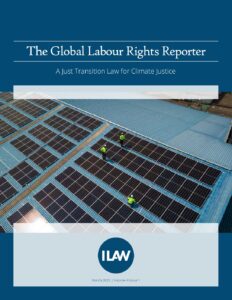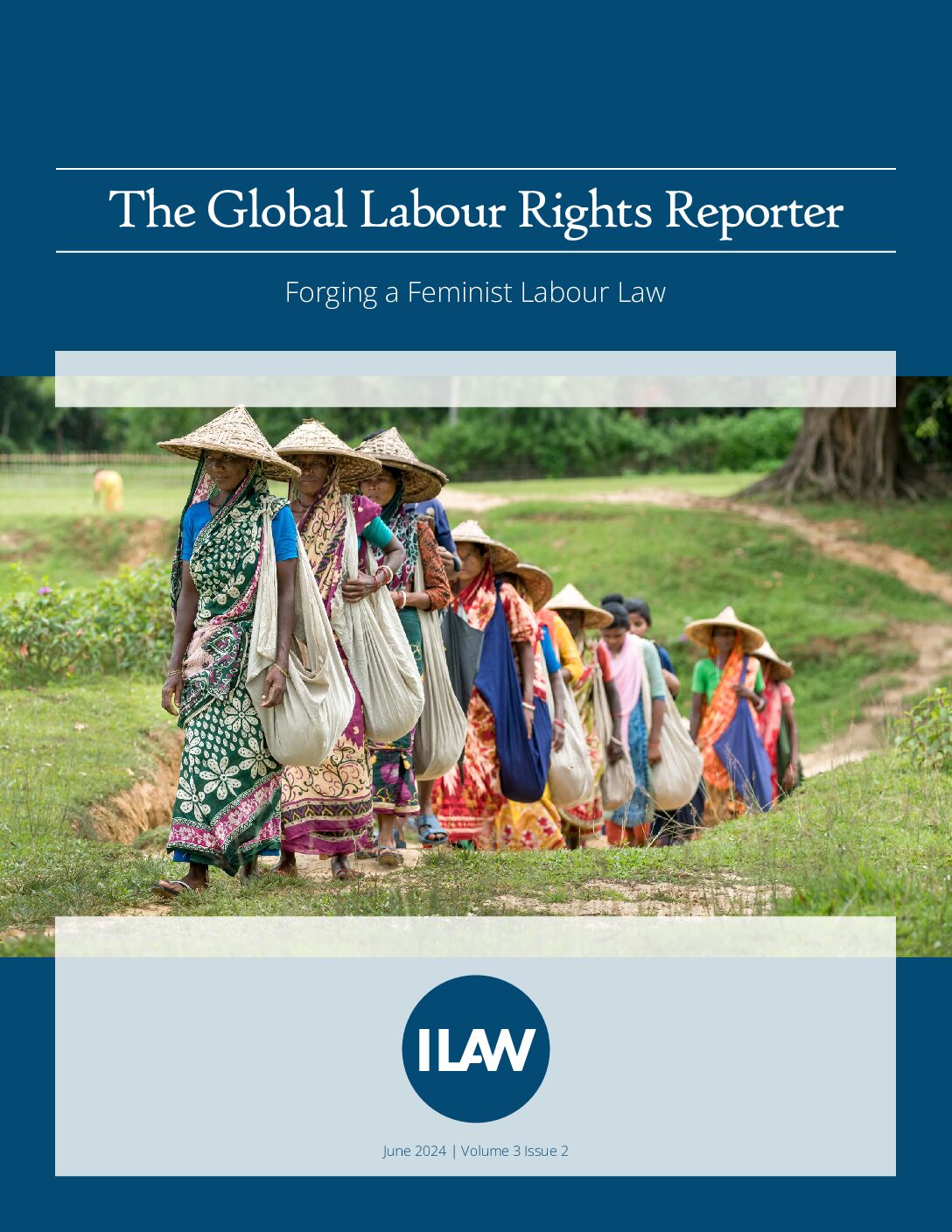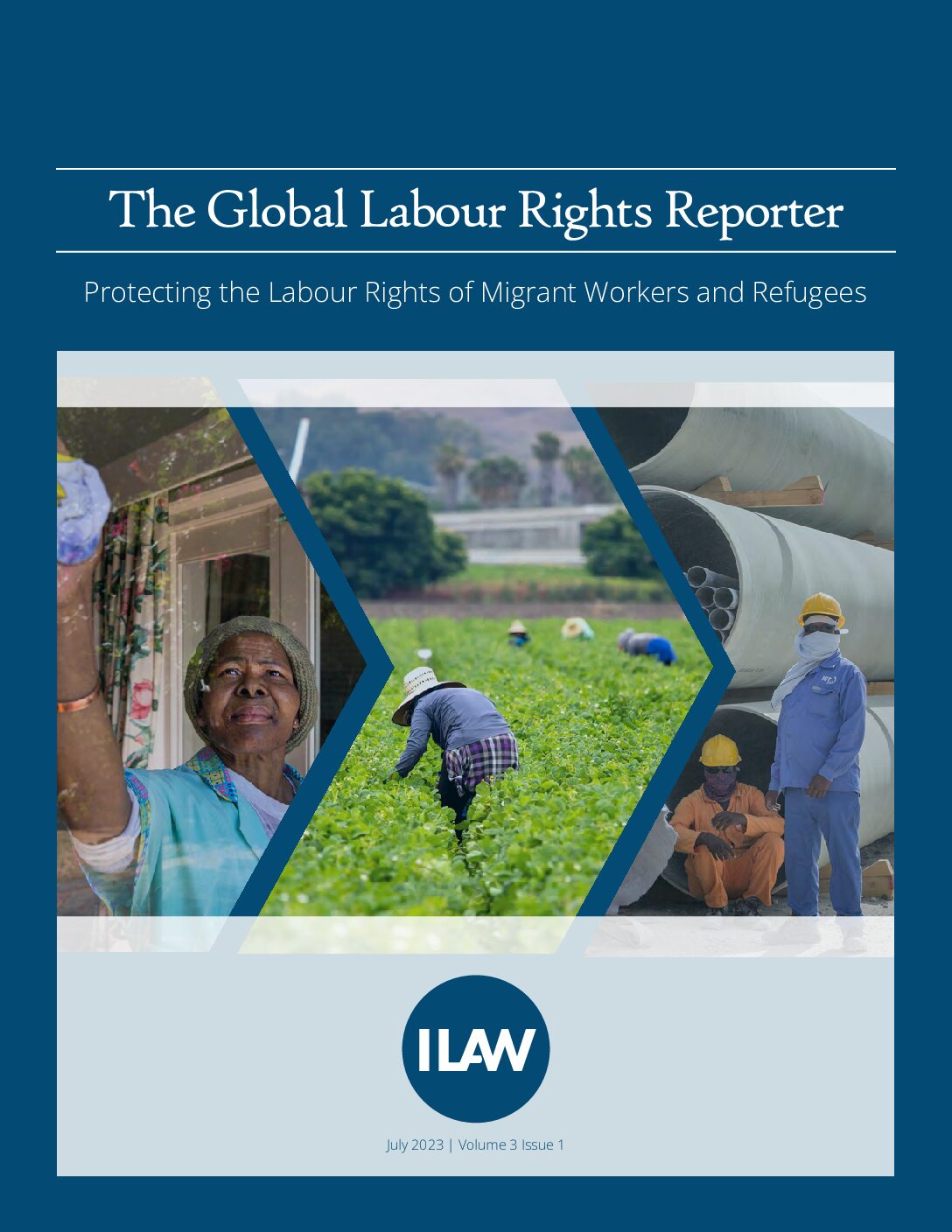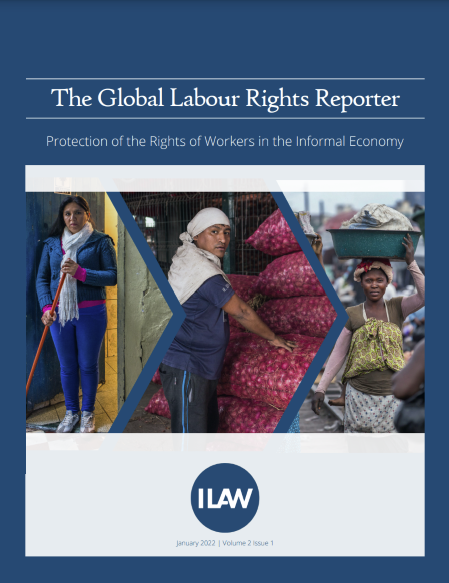
Volume 4, Issue 1 | March 2025
In this issue, we seek to publish theoretical and practical essays that examine the legal and policy intersections of labor and environmental law and policy. A “just transition” body of law would refer to the legal and policy concepts to ensure workers and trade unions have a central role in the transformation of firms, sectors and national economies towards climate sustainability as well as to support their rights and interests in the process.

Volume 3, Issue 2 | June 2024
In this issue, we explore gender as a crucial feature in the organization and valuation of work, and which question the efficacy of traditional models of labor law to meet the needs of women workers. This includes confronting the implications for labor law of acknowledging the interdependence of work and family life and the constituting significance of gender in relation to the social (and legal) organization of work. Of course, gender can only be understood in relation to, and in combination with, other axes of subordination such as race and ethnicity, sexual orientation and gender identity, class, caste, ability, religion, and other bases.

Volume 3, Issue 1 | July 2023
This issue of the Global Labour Right Reporter is focused on Protecting the Labour Rights of Migrant Workers and Refugees. In 2021, the ILO estimated that there are 169 million international migrant workers (meaning those who are employed in a country of which they are not a national) with a rise in the number of young people migrating for employment. As such, migrant workers make up 5% of the global workforce. Migrant workers are among the most vulnerable as they often are excluded from coverage of labour laws, including limitations or exclusions from the right to associate or to collectively bargain. Access to labor justice – either in the country in which they work or the country where they are from – is often difficult at best. And these problems are compounded for those who are undocumented migrant workers, many of whom work in the shadows without recourse to labor inspection, administrative bodies or courts. This Journal issue explores regulatory, legislative, and advocacy based strategies to ensure access to justice for migrant workers and refugee workers around the world.
Launching Soon
Global Labour Rights Reporter | Volume 2, Issue 2 | Winter 2022
“The Future of the International Labour Organization”

Volume 2, Issue 1 | February 2022
For this next issue of the GLRR, the Editorial Board has chosen the theme of “Protection of the Rights of Workers in the Informal Economy.” The Informal economy is usually seen as ‘a diversified set of economic activities, enterprises, jobs and workers that are not regulated or protected by the state. In 2018, the ILO estimated that about 61% of the world’s workers are within the informal economy, approximately 2 billion workers worldwide. These workers have been consistently excluded from legal recognition and protection. Their exclusion is often driven by discrimination based on race, caste, sex, gender, ability, age, migration status, etc. However, these workers make up a majority of the world’s workforce and are key actors in just transition policies, combating poverty, ensuring equity, and more.
Volume 1, Issue 2 | August 2021
For the second issue of the Global Labour Rights Reporter, the Editorial Board has chosen the theme of “Accountability and Remedy in Global Supply Chains: Considerations for Workers and Unions”. Over the last several decades, a global system to produce goods and services has been built—by design—to push as much economic risk as possible down the supply chain (and in particular onto workers) and to pull up most of the economic benefits. At the same time, the legal rights and interests of MNEs tend to be well protected in courts and arbitral tribunals while workers have few effective means to hold these MNEs accountable for the harms their actions cause. The global pandemic has only exacerbated these pre-existing dynamics.
Volume 1, Issue 1 | January 2021
The ILAW Network is excited to be publishing a new law journal – the Global Labour Rights Reporter. The journal intends to be a forum primarily for labour and employment law practitioners globally, including ILAW Network members, to grapple with the legal and practical issues that directly affect workers and their organizations today. We see the strength of the journal being its comparative approach, given the worldwide composition of ILAW’s membership. Each issue of the journal will be organized thematically and will highlight notable cases and judicial opinions, trends in the regulation of labour, and analytical pieces which help to envision how practitioners can expand the protection of law, enhance accountability and obtain full and effective remedies. We intend for the journal to be published bi-annually, summer and winter, with the possibility of additional articles or contributions being posted on the journal’s website between issues.